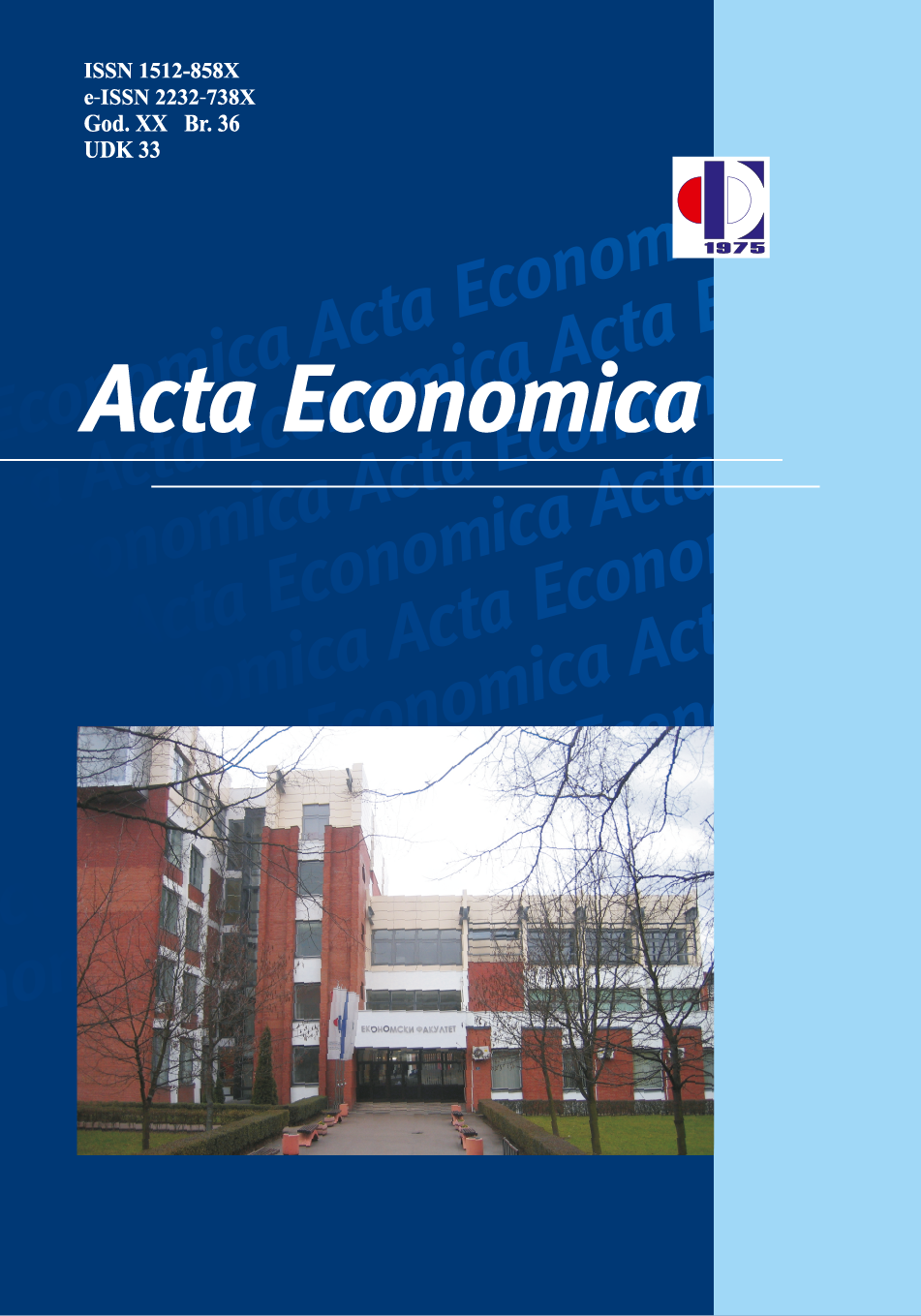DISCOUNT RATE AS A MEASURE OF MONETARY POLICY FOR MARKET STABILIZATION: AN EXAMPLE OF THE NATIONAL BANK OF SERBIA
DOI:
https://doi.org/10.7251/ACE2237075TAbstract
The increase in interest rate is related to the efforts of monetary authorities to neutralize inflationary pressures; while the rate reduction can be interpreted as an invitation to business sector to access more favorable lending conditions. The effectiveness of these changes largely depends on the development level of financial system, the role of the central bank as a creditor and current economic situation. In this research an econometric regression double-logarithmic model was applied, with the main goal of examining the relationship between discount rate and its influence on interest rates and money supply on the example of the National Bank of Serbia. The results show the correlation between the NBS discount rate and interest rates of commercial banks and the amount of money in circulation, indicating their influence on market stability.

